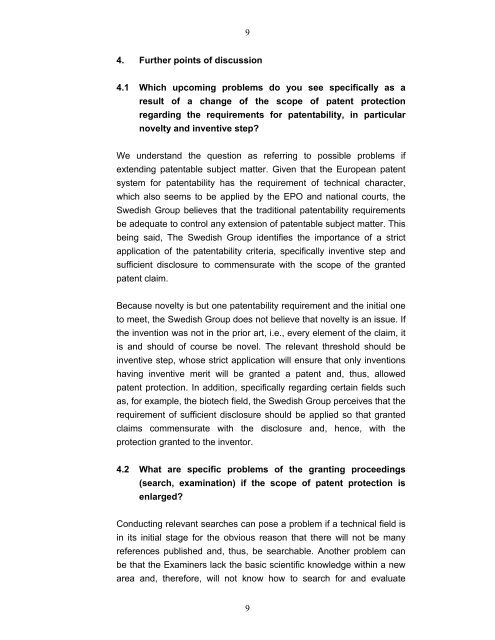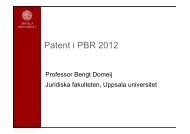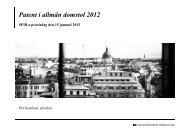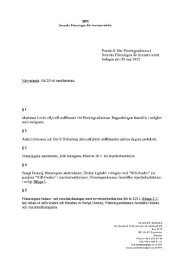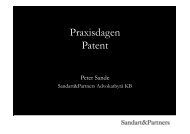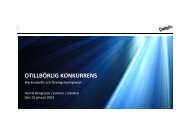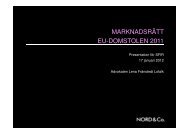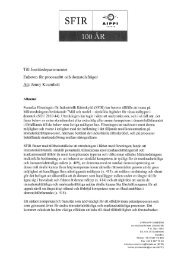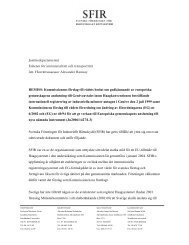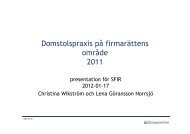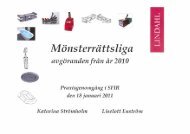Q178 draft report.pdf - SFIR
Q178 draft report.pdf - SFIR
Q178 draft report.pdf - SFIR
You also want an ePaper? Increase the reach of your titles
YUMPU automatically turns print PDFs into web optimized ePapers that Google loves.
9<br />
4. Further points of discussion<br />
4.1 Which upcoming problems do you see specifically as a<br />
result of a change of the scope of patent protection<br />
regarding the requirements for patentability, in particular<br />
novelty and inventive step?<br />
We understand the question as referring to possible problems if<br />
extending patentable subject matter. Given that the European patent<br />
system for patentability has the requirement of technical character,<br />
which also seems to be applied by the EPO and national courts, the<br />
Swedish Group believes that the traditional patentability requirements<br />
be adequate to control any extension of patentable subject matter. This<br />
being said, The Swedish Group identifies the importance of a strict<br />
application of the patentability criteria, specifically inventive step and<br />
sufficient disclosure to commensurate with the scope of the granted<br />
patent claim.<br />
Because novelty is but one patentability requirement and the initial one<br />
to meet, the Swedish Group does not believe that novelty is an issue. If<br />
the invention was not in the prior art, i.e., every element of the claim, it<br />
is and should of course be novel. The relevant threshold should be<br />
inventive step, whose strict application will ensure that only inventions<br />
having inventive merit will be granted a patent and, thus, allowed<br />
patent protection. In addition, specifically regarding certain fields such<br />
as, for example, the biotech field, the Swedish Group perceives that the<br />
requirement of sufficient disclosure should be applied so that granted<br />
claims commensurate with the disclosure and, hence, with the<br />
protection granted to the inventor.<br />
4.2 What are specific problems of the granting proceedings<br />
(search, examination) if the scope of patent protection is<br />
enlarged?<br />
Conducting relevant searches can pose a problem if a technical field is<br />
in its initial stage for the obvious reason that there will not be many<br />
references published and, thus, be searchable. Another problem can<br />
be that the Examiners lack the basic scientific knowledge within a new<br />
area and, therefore, will not know how to search for and evaluate<br />
9


